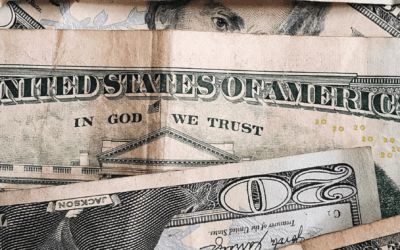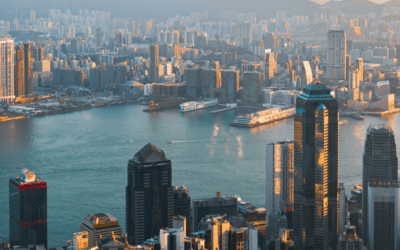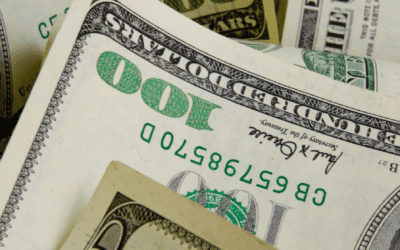Dateline: Dublin, Ireland
Every book about investment basics talks about the value of having your portfolio well diversified.
The rationale is that if you hold all of your net worth in, say, energy stocks and a relevant global event triggers huge losses in the energy sector, then your losses are maximized. The same goes if all of your investments are in residential real estate or municipal bonds. “Don’t put all your eggs in one basket,” we are told.
So your professional financial adviser might suggest a portion of your portfolio be stocks, and even those diversified among blue chips, growth, and income-producing stocks. Or mutual funds with similar profiles. And that another portion of your portfolio is in government bonds and corporate bonds.
And maybe some precious metals in the form of ETF’s or even some physical gold held in your personal safe deposit box right at your hometown bank. Maybe in addition to your own home, you might be advised to own an income-producing rental home that’s expected to appreciate.
The above portfolio is considered a prudent, thoughtful, well-diversified strategy to weather the vicissitudes of the market. It basically represents, more or less, the way most individual portfolios and pensions are situated for many millions of people in the US and the other developed Western countries.
I’m not a professional investment advisor — I’m not even close to one — so that’s not what I’m actually writing about today. I’m a student of history, and here’s what history has taught us about real financial storms:
The really bad financial crises are always caused by governments. Particularly governments that got into debt over their heads, refused to admit it and kept making promises of more welfare and warfare that could just be put on credit and paid back later.
Of the two (welfare and warfare), warfare has the longest record of bringing financial ruin on not just countries, but entire empires. I won’t bore you with the list. You’ve likely heard it before.
Not a Rainy Day, a Category 5 Hurricane
Here’s a very quick look at the top four world economies, in no particular order.
The US has accumulated the largest debt in the history of the world. That debt goes up every year and already at least three unborn generations of Americans are sentenced to making the interest payments after you and I have been drained and are long gone. I say “making the interest payments” because it is not politically possible to pay off the interest and all of the principle the US owes, plus keep all the promises of pensions and medical care for 300-million people. So a big storm is coming there.
China is gradually figuring out that in a capitalist system, and especially in a semi-corrupt, semi-capitalist system, real estate does not increase in value every month in perpetuity. So all the regular folks who are suddenly wealthy because their apartment has gone up in value 2,000% since they bought it are about to get a rude awakening when the Chinese housing bubble bursts. And while we hear about the cash reserves China has, we hear only whispers of the national debt, and even less about the trillions in regional debt. Added to that pressure is an authoritarian government terrified that a financial downturn will be blamed on bad governance and cause loud demands for actual democracy. So a big storm is coming there.
Japan already has an astounding debt to GDP ratio north of 230 percent. Yet the real wages have not seen any growth in such a long time that the infamous Lost Decade is now called the Two Lost Decades. Add to that the increasing public expense of an aging population that gives Japan the highest proportion of elderly citizens in the world. Huge debt-to-GDP, stagnant wages, growing public expense. So a big storm is coming there.
The European Union contains six countries with debt to GDP above 100 percent (Greece, Italy, Portugal, Ireland, Cyprus, and Belgium). And Spain, France, and the UK are getting close. Moreover, the EU is seeing massive protests against both immigration and so-called cuts to public welfare spending (often just reduced increases). Pockets of the EU are a tinder box of stratospheric youth unemployment, high taxation, unwelcome immigration, and bloated public sector pensions and benefits. So a big storm is coming there.
My friends, this is not the forecast for a rainy day. It’s a forecast for a Category 5 hurricane. All of these economies are interconnected. They are giant dominoes. And when your government gets caught in the storm it will grab money from wherever it can.
The damage of a financial hurricane
When that category 5 hurricane hits, suddenly, your diversified portfolio isn’t the slightest bit diversified. It’s all subject to the same risk: your government.
In order to ‘protect’ you from the inevitable drop in the stock market, a large portion of your liquid investments will be ordered into government bonds ‘for safety.’ There will also be a ‘temporary moratorium’ on selling them.
Precious metals will be owned by vilified ‘hoarders’ who are ‘betting against their own country.’ Your bank will gleefully hand over any now-illegal quantities found in their safety deposit boxes the minute the order arrives from any official bureaucracy.
The ETFs you bought are subject to fantastic counter-party risks you were likely never made fully aware of. Good luck getting to the top of that list.
The default on various government promises and guarantees will cause interest rates to rise, thus making all homes less affordable and driving prices down. Property taxes will go up as local governments reel from federal cutbacks in programs, subsidies and other free money from taxpayers. Those factors will cause many people to mail the keys to their lender and walk away, thus driving real estate prices farther down.
As banks start tipping over, they will be authorized to receive a ‘bail-in’ in the form of just keeping depositor’s money. See Cyprus 2012. So there goes your disaster cushion of cash.
Hey, risk diversification is a brilliant and valid concept. But when your own government IS THE RISK you have no business having all your eggs in the same government basket. Inside one political jurisdiction, you can diversify all you want, but the government will still be able to scoop it all up with a few quick new laws and some mouse clicks. So the risk is not really diversified, is it?
We all know we live in a giant, politically connected, global economy. So diversify your political risk in a private, disconnected, needle-in-a-haystack way, and don’t be the low hanging fruit for the politicians wanting to grab everybody’s nest egg during and after the hurricane they caused.
Be somewhere else — first mentally, then financially, then politically, then physically. Be truly diversified. Options abound.









